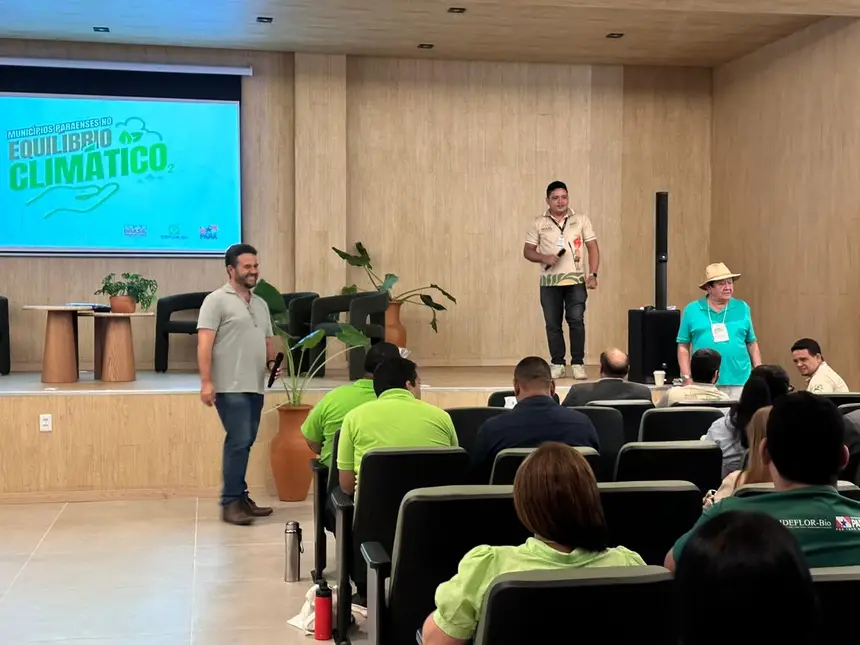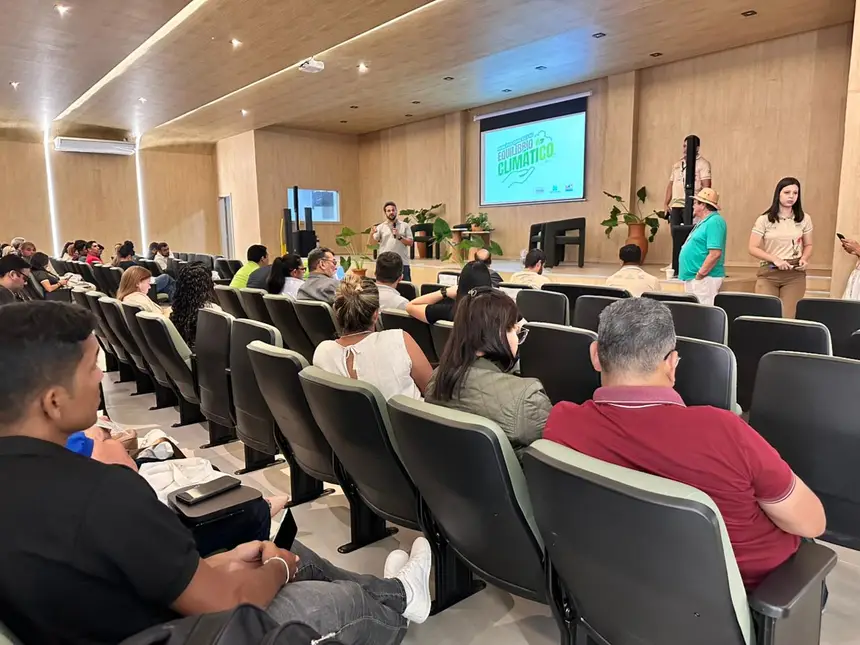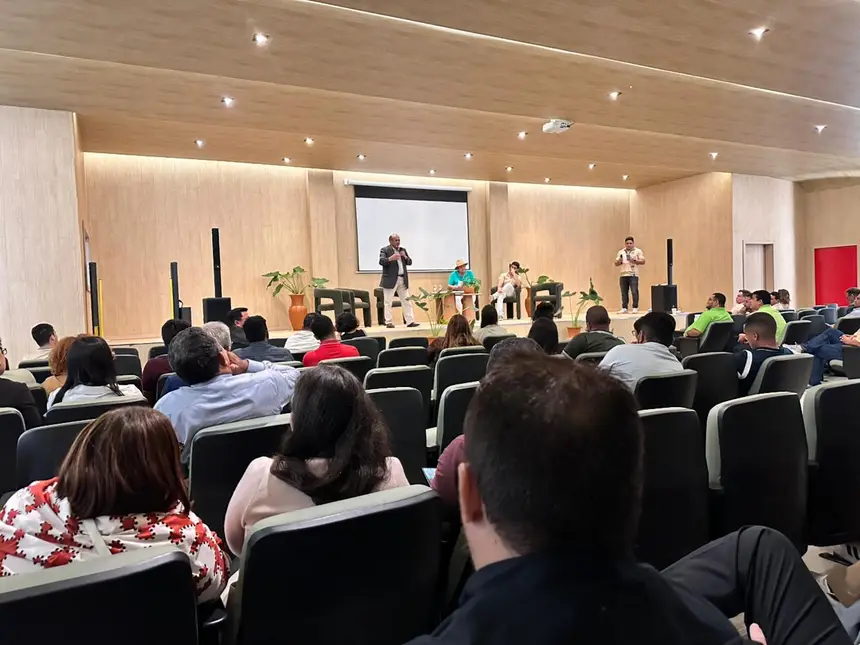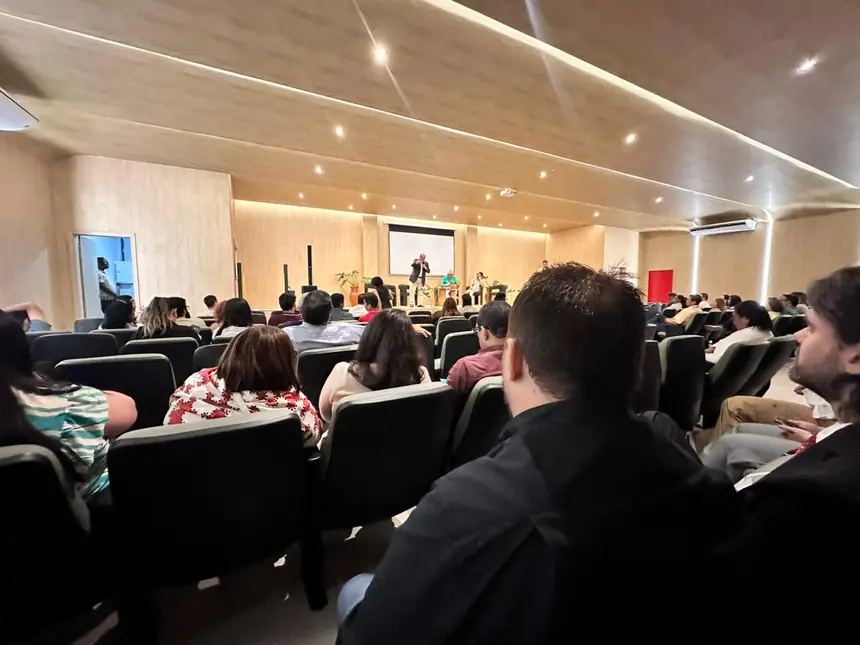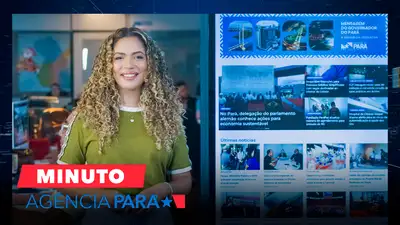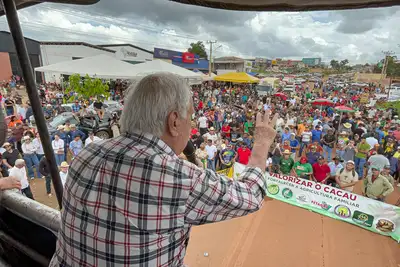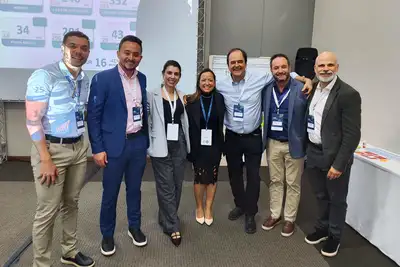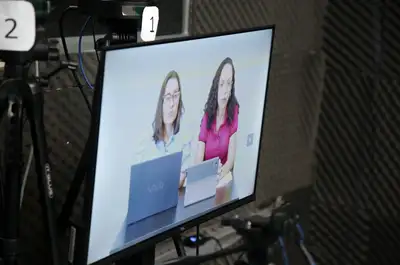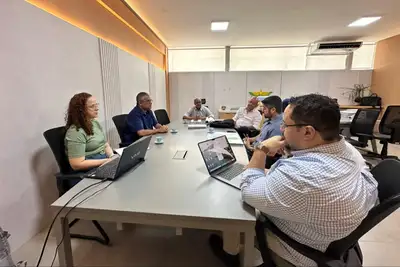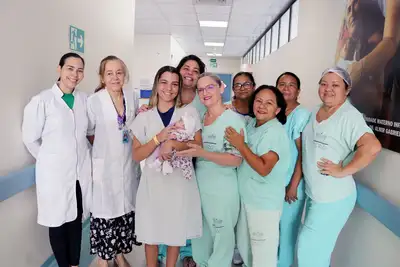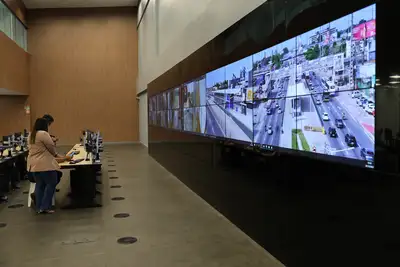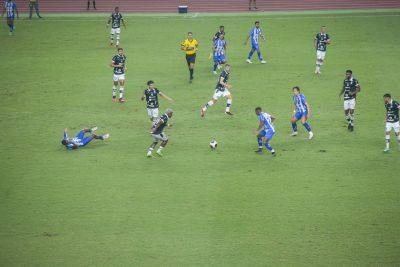Ideflor-Bio launches guide for the creation of municipal conservation units
The launch took place on the last day of the Seminar, which brought together representatives from municipalities in Belém to deepen the dialogue on climate balance and environmental management
Produced by the Institute of Forest Development and Biodiversity (Ideflor-Bio), the booklet "Guidelines and Recommendations for the Creation of Municipal Nature Conservation Units in the State of Pará" was launched this Friday (7), at the closing of the Seminar "Municipalities of Pará in Climate Balance". The guide offers technical and legal support to municipalities wishing to establish protected areas in their territories, detailing steps, legal requirements, and management models.
The launch was attended by the president of Ideflor-Bio, Nilson Pinto; the Technical Advisor of the Institute, Thiago Valente, and the Director of Biodiversity Management, Crisomar Lobato.

In two days of debates and experience sharing on environmental conservation in Pará, the Seminar brought together municipal managers, environmental technicians, and local leaders in the auditorium of Ideflor-Bio, in Belém. The aim was to guide municipalities in the application of the State Policy for Nature Conservation Units (Peuc) and in strengthening the State System of Nature Conservation Units (Seuc).
The program was part of the Government of Pará's calendar for the United Nations Conference on Climate Change, COP30, which will take place in the capital from November 10 to 21. Emphasizing the role of municipalities in the climate agenda, the event deepened the dialogue on local environmental management and conservation units as essential instruments for mitigating climate change, protecting biodiversity, and sustainably using natural resources. The program took place in person from 8 am to 1 pm, with technical lectures, strategic presentations, and experience-sharing sessions.
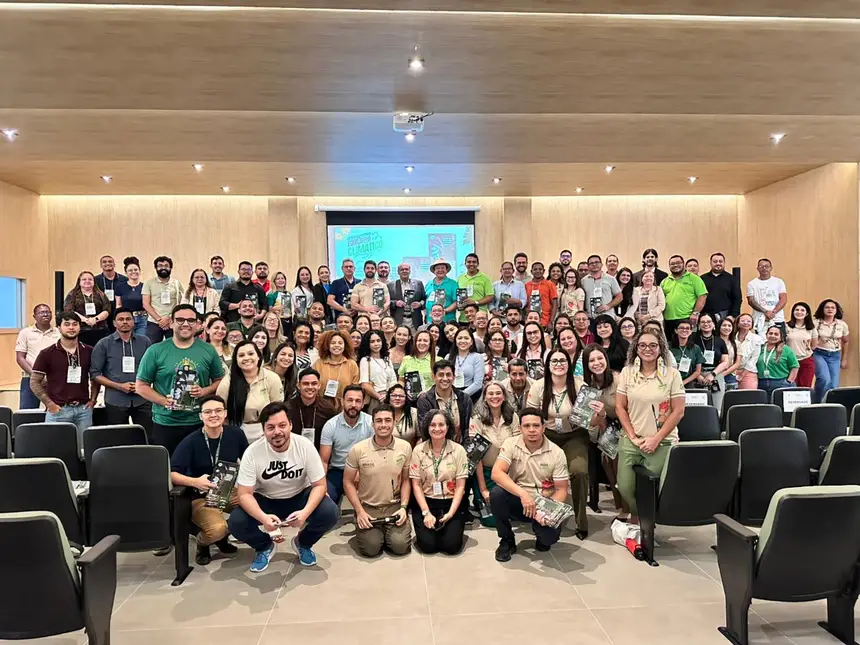
Technical support - Currently, Pará has 42 municipal conservation units, totaling 88,019.89 hectares of areas designated for biodiversity protection. Of these, 13 were created with technical support from Ideflor-Bio, resulting from direct partnership with municipalities. "Municipalities have taken on an increasingly leading role in environmental protection. Strengthening municipalities means strengthening Pará and consolidating public conservation policies that reach the citizen," said Nilson Pinto, president of the Institute. "Our commitment is to provide technical and institutional support so that each municipality has the means to protect its territories and promote sustainable development," he added.
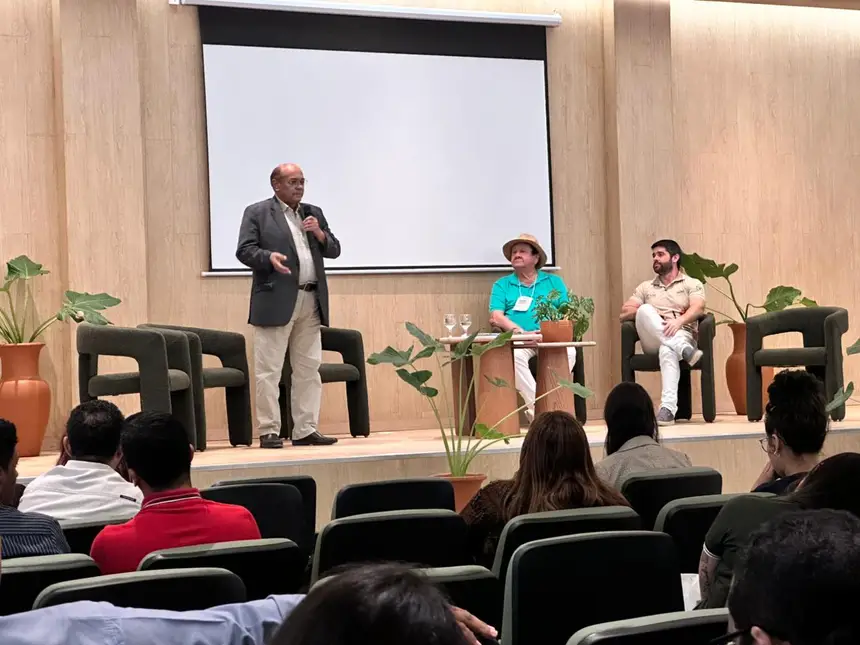
On the second day of the Seminar, the program focused on financial and strategic instruments, such as the Green ICMS, the Environmental Compensation Fund (FCA), the State Forest Development Fund (Fundeflor), and possibilities for national and international financing.
There was also a highlight on ecotourism as an economic vector, with the presentation of the Atlantic Amazon Trail, by the manager of the Administrative Region of Belém of Ideflor-Bio, Júlio Meyer, who presides over the Brazilian Trail Network. He emphasized that the ecological corridor connects protected areas in 17 municipalities along the coast and northeastern Pará.
According to Júlio Meyer, "environmental management is increasingly closer to municipalities. The Atlantic Amazon Trail connects 13 protected areas and 17 municipalities, uniting efforts, strengthening ecotourism, and promoting territorial integration. Before connecting areas, we connect people, and this meeting showed how much municipalities want to walk together."
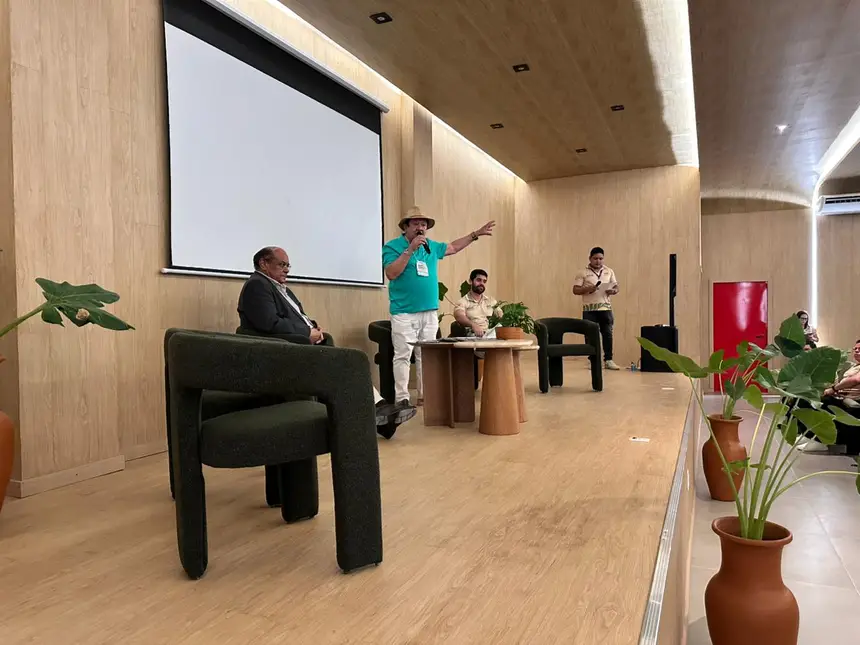
Protagonism - For Crisomar Lobato, the results of the meeting reflect the willingness of municipalities to advance. "We are at a historic moment for the environmental agenda of Pará. The Seminar showed that municipalities want to structure environmental policies, create new conservation units, and access financing. Ideflor-Bio is here to walk alongside and ensure that these initiatives turn into concrete results," said the director.
Managers who participated in the technical tables highlighted the impact of the Seminar. The Secretary of the Environment of Ponta de Pedras, Justino Júnior, reinforced the importance of the partnership between the State and Municipalities. "This Seminar is a watershed. We already have ongoing actions with the support of Ideflor-Bio, such as the implementation of the seedling nursery and the arrival of our future forest. This partnership further strengthens the defense of the environment and environmental education, raising awareness among the population and showing that the municipality is being cared for," emphasized the secretary of the municipality located in the Marajó Archipelago.
Nayme Couto, Secretary of the Environment of Juruti (in western Pará), also highlighted the learning and integration among municipalities. "It was two days of much exchange and learning. Juruti has just signed an agreement with Ideflor-Bio to structure our Lago Mole Wildlife Reserve, and being here is essential to share experiences and access new opportunities. COP30 will show the world that Pará is advancing, and that municipalities are also protagonists of this agenda," she emphasized.
The Seminar concluded with the collective construction of recommendations to expand and qualify the creation of municipal conservation units in Pará. "Our event consolidated commitments, aligned strategies, and reaffirmed the role of the State as a technical and institutional articulator. With unprecedented materials and strengthened cooperation networks, municipalities leave the meeting prepared to advance in the protection of biodiversity and in facing climate change," concluded Crisomar Lobato.


